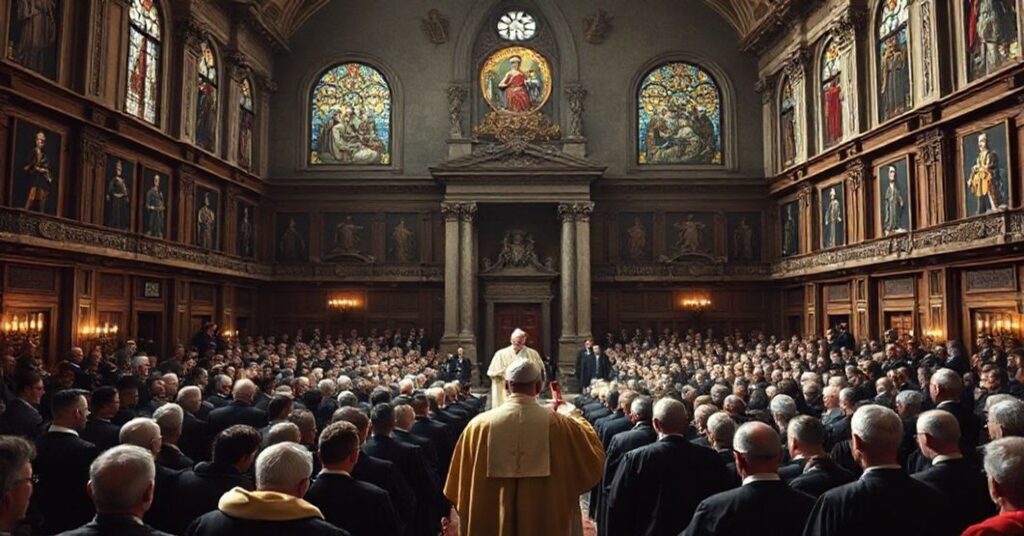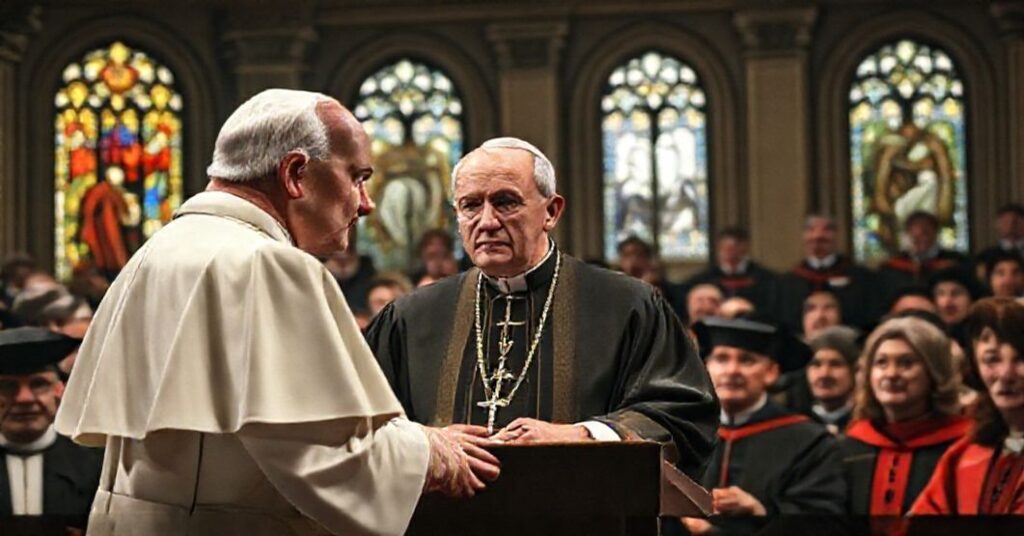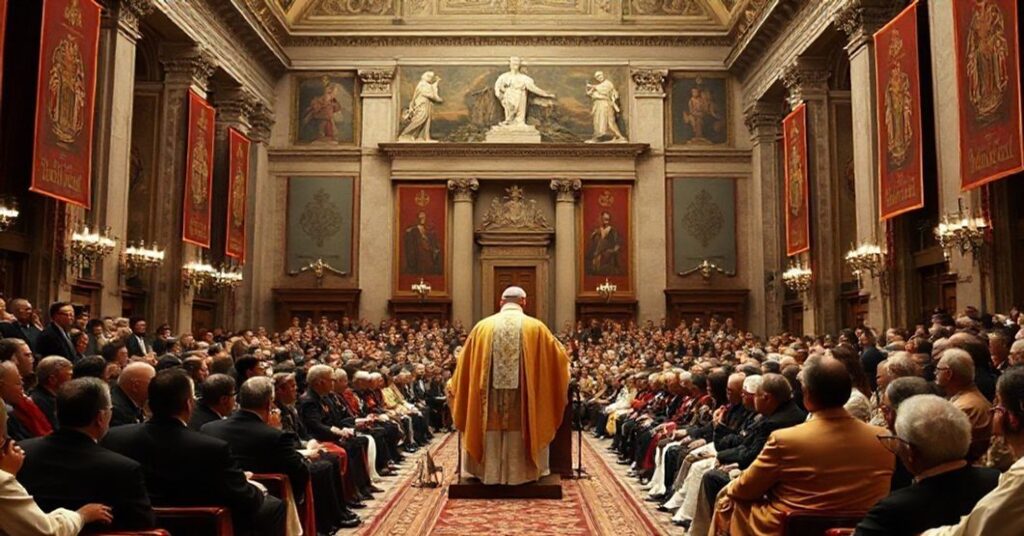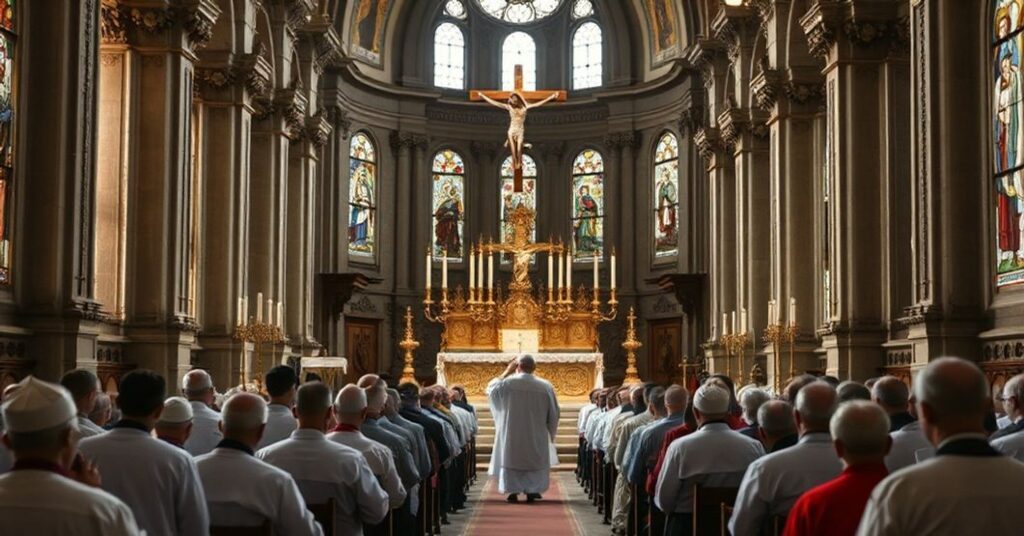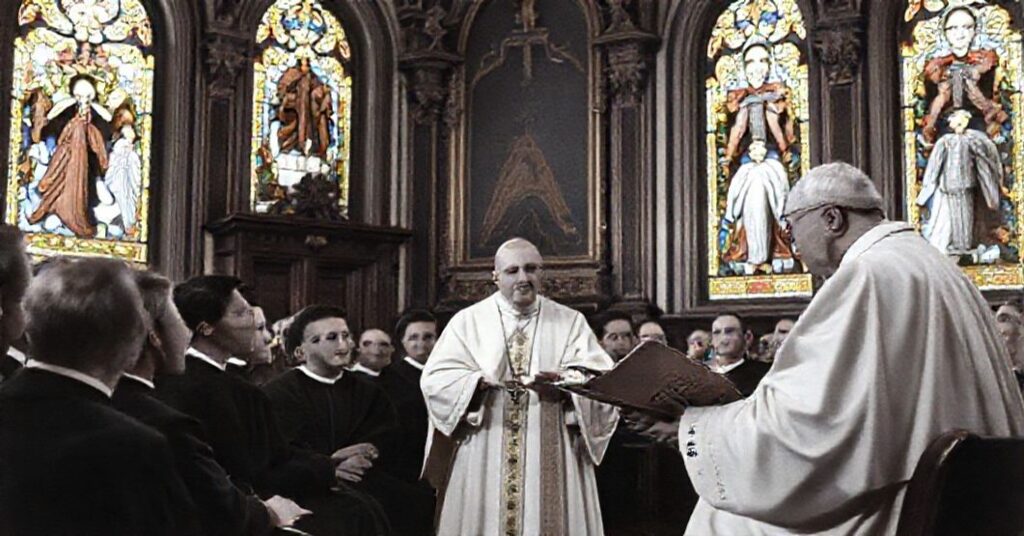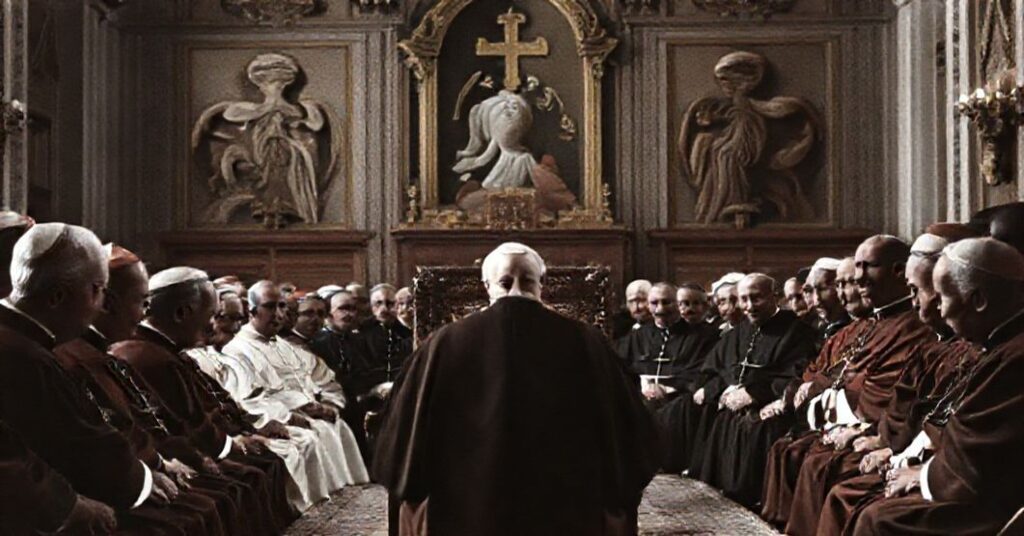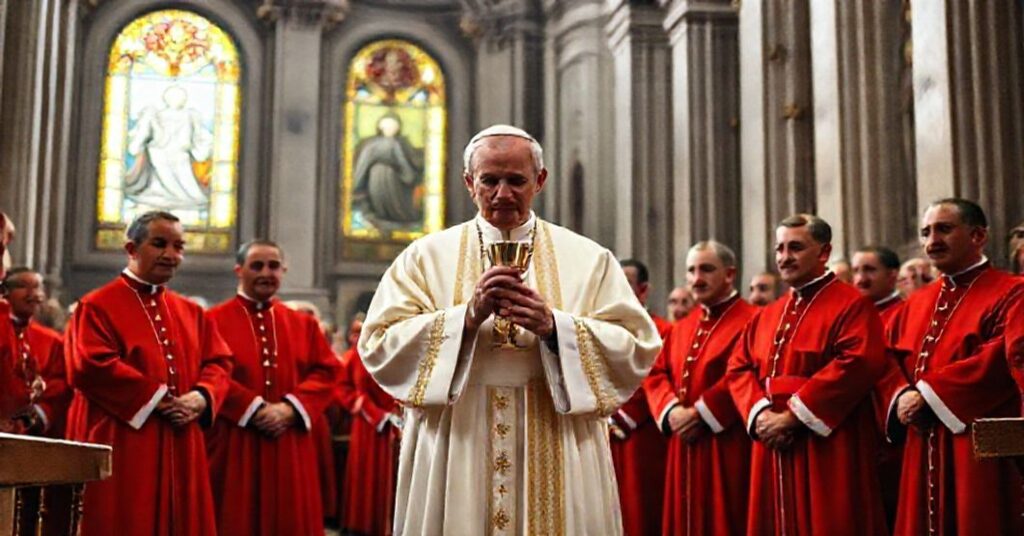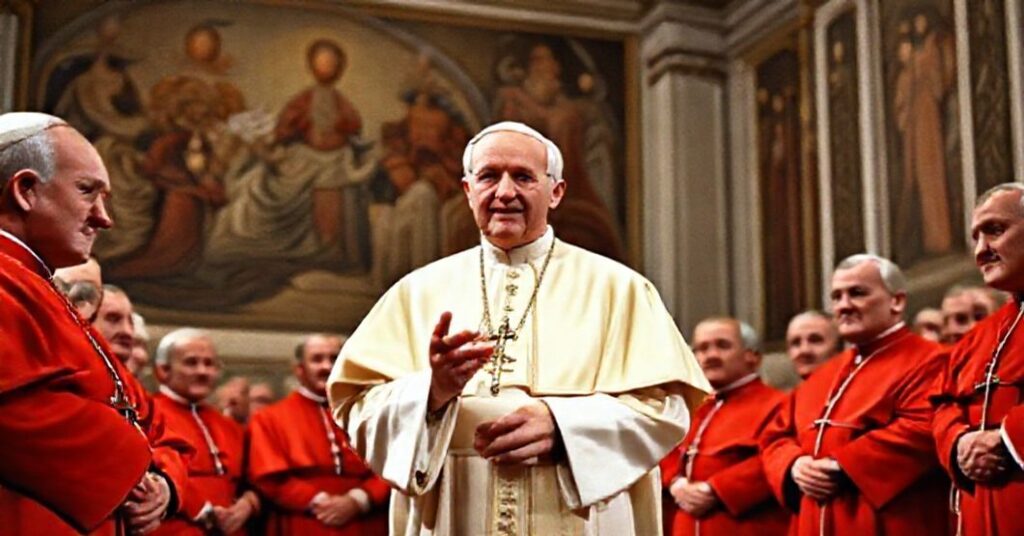Allocutio ad Pontificiam Universitatem Gregorianam (1959.01.18)
In this allocution of 18 January 1959 at the Pontifical Gregorian University, John XXIII offers courteous praise of the university, exalts its title “Pontifical University Gregorian,” recalls Gregory XIII, commends the Jesuits, and exhorts professors and students to unite science with piety, obedience to the “Magisterium,” and zeal for the “Kingdom of Christ” in the modern world. Behind this apparently edifying rhetoric, however, stands the embryonic program of the conciliar revolution: the instrumentalization of Catholic institutions to legitimize a new religion that will shortly betray the very doctrinal foundations it superficially invokes.

